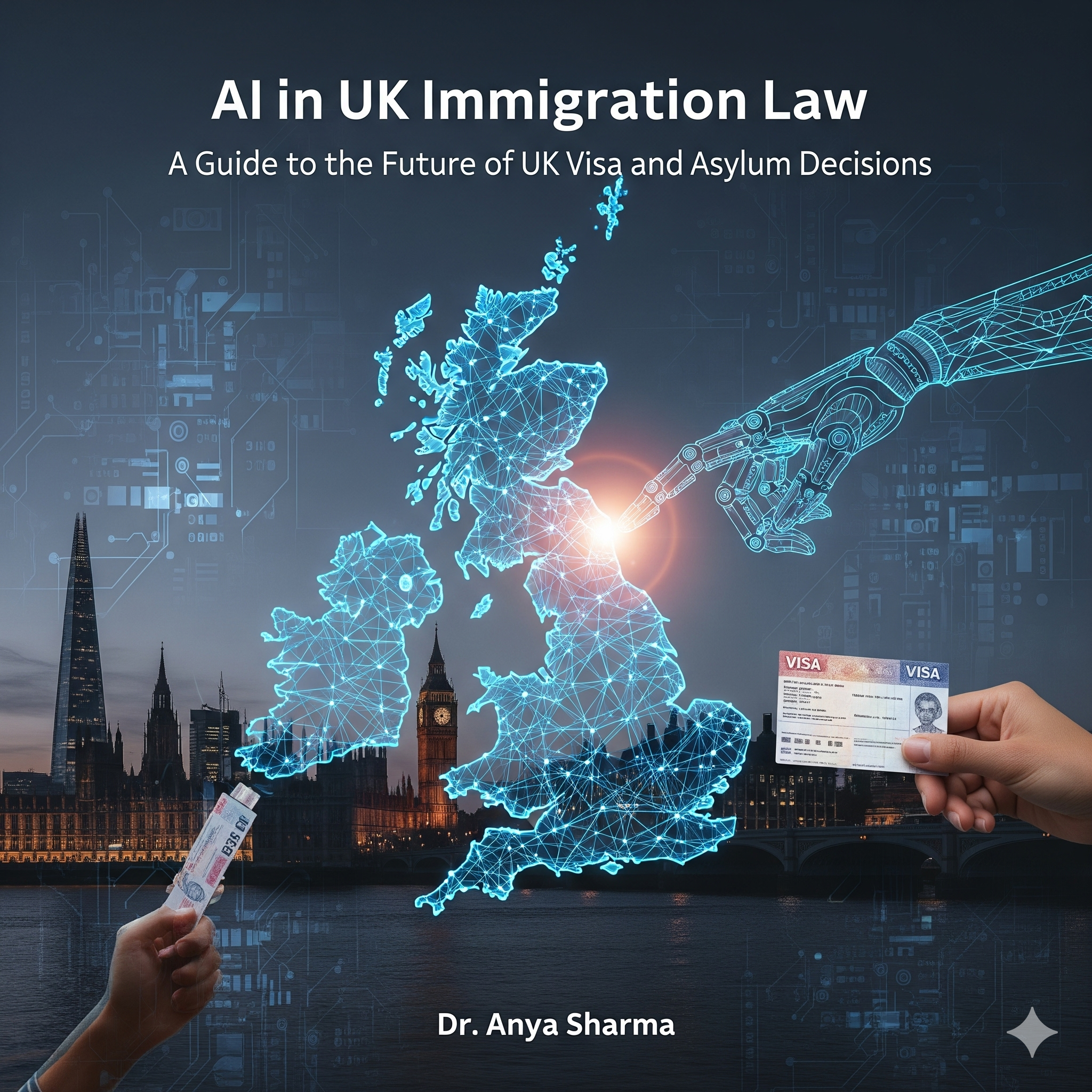
AI in UK Immigration Law: A Guide to the Future of UK Visa and Asylum Decisions
The UK legal landscape is undergoing a profound digital transformation, and the field of immigration law is no exception. With record delays in the asylum system and a complex visa application process, officials are turning to technology to find solutions. This has led to the introduction of artificial intelligence (AI) into the UK immigration and asylum process, a development that brings both potential benefits and significant risks.
So, what does this new era of digital-assisted immigration mean for you?
The UK Home Office’s AI Trials
The Home Office is actively trialing new AI-powered tools designed to increase efficiency and streamline casework. For example, some systems are being used to automatically summarize lengthy asylum interview transcripts, while others act as search assistants to help caseworkers quickly find relevant country policy documents. Most recently, the government announced a pilot scheme to test technology that uses facial features to estimate the age of asylum seekers. The goal is to make decisions faster and more cost-effective in a system that has been criticized for its delays. These initiatives are part of a broader government push, backed by initiatives like LawtechUK, to drive digital transformation across the UK legal sector.
The Risks: Is AI Biased?
While AI offers promise, experts and advocacy groups are urging caution. A key concern is that AI systems are only as neutral as the data they are trained on. If past human decisions have been biased—whether consciously or not—the AI could learn and repeat those same patterns, potentially reproducing racial or nationality-based discrimination. This is particularly problematic in a field where high-stakes decisions about people’s lives and safety are made. A report by the Chief Inspector of Borders and Immigration warned that the mental health of young asylum seekers is suffering due to failures in age verification systems, with at least 1,300 children incorrectly deemed to be adults over an 18-month period.
Furthermore, AI may struggle to assess the nuances of human experience. Asylum decisions often rely on understanding personal narratives, recognizing trauma, and assessing how an individual might behave under extreme stress—areas where human empathy and discretion are critical. The question remains whether technology can truly grasp these complexities.
The Need for Transparency and Expert Guidance
Despite the push for AI adoption, there is still a significant lack of public evidence on how these systems affect real-life outcomes for asylum seekers. Transparency, oversight, and clear limits are essential to ensure that faster decisions do not come at the cost of fairness. Organizations like the Migration and Immigration Control Unit (MICLU) have called for more transparency on how these tools work.
Navigating the UK’s evolving immigration system requires a deep understanding of not only the law but also the new technologies and policies influencing it. The team at JJ Law Chambers, listed on the official Solicitors Regulation Authority database, stays at the forefront of these developments to ensure our clients receive the most up-to-date and effective legal representation.
Call to Action
If you need expert guidance on a UK visa application, an asylum claim, or an immigration appeal, contact our Immigration Law team today for a consultation. You can also learn more about our firm on our About Us page.